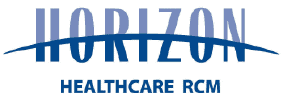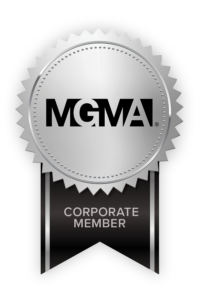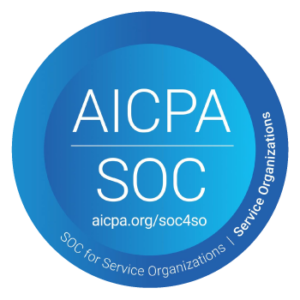Understanding the Key Challenges in Healthcare RCM
Navigating the world of healthcare revenue cycle management (RCM) can be a daunting task. The process involves a multitude of steps and several stakeholders, each with its own set of challenges. In this blog, we will explore the significance of effective RCM in healthcare and explore the key issues that healthcare providers often encounter in the course of managing their revenue cycles. We will also delve into actionable strategies to efficiently manage these challenges and ensure the financial health of the organization.
Maintaining Financial Stability
Healthcare providers rely on robust RCM to secure accurate and prompt reimbursements for services rendered. This not only improves cash flow but also mitigates claim denials and underpayments, contributing significantly to the overall financial stability of the organization. A steady cash flow enables providers to prioritize and enhance the delivery of quality patient care, ensuring resources are effectively allocated to meet healthcare demands.
Improving Patient Satisfaction
Efficient healthcare RCM processes, including swift insurance verification, precise billing, and transparent financial communication, play a pivotal role in elevating patient satisfaction. Patients experience a more positive interaction with the healthcare system when they understand their financial responsibilities. The seamless coordination of these RCM components fosters trust and satisfaction, ultimately enhancing the overall patient experience within the healthcare setting.
Operational Efficiency
Streamlining RCM workflows is pivotal in reducing administrative costs and minimizing errors in the healthcare ecosystem. The integration of automation and advanced analytics within RCM provides actionable insights, proactively preventing revenue leakage. This not only optimizes staff productivity but also efficiently utilizes organizational resources. By enhancing operational efficiency through RCM, healthcare providers can allocate resources more effectively, ensuring a sustainable and streamlined healthcare delivery process.
Understanding the Healthcare RCM Process
Navigating the healthcare revenue cycle involves a series of intricately connected steps, each playing a pivotal role in ensuring financial stability, operational efficiency, and patient satisfaction. Here’s a detailed breakdown of the healthcare revenue cycle process:
- Patient Registration and Scheduling:
- Gathering accurate demographic and insurance information from patients.
- Scheduling appointments efficiently to optimize healthcare provider resources.
- Eligibility Verification:
- Verifying insurance coverage to ensure the patient’s eligibility for services.
- Confirming details such as co-pays, deductibles, and coverage limits.
- Charge Capture:
- Recording the services provided during a patient visit.
- Capturing charge information accurately to reflect the care delivered.
- Coding and Documentation:
- Assigning accurate medical codes to diagnoses and procedures.
- Ensuring thorough documentation to support the codes assigned.
- Claims Submission:
- Compiling and submitting claims to insurance payers.
- Adhering to specific formatting and coding requirements for each payer.
- Payment Posting:
- Recording payments received from insurance companies and patients.
- Updating patient accounts with accurate payment information.
- Denial Management:
- Identifying and addressing rejected or denied claims.
- Investigating the reasons for denials and taking corrective action.
- Patient Collections:
- Communicating effectively with patients regarding their financial responsibilities.
- Establishing and managing payment plans, if necessary, to collect outstanding balances.
Want to learn more about how effective healthcare RCM supports your operations? Check out our blog to dive deeper into the impact of RCM on financial stability and compliance.
11 Top Challenges in Healthcare RCM
Maintaining Compliance Among Complex and Evolving Regulations
Healthcare organizations face the ongoing challenge of adhering to numerous and frequently changing federal, state, and payer regulations related to billing, coding, privacy, and more. Keeping current with new rules, coding changes, evolving payer policies, and staying compliant is extremely challenging for providers. Any non-compliance often leads to costly claim denials and penalties.
Accurate Medical Coding and Billing
Incorrect medical coding often results in denied insurance claims and lost revenue for healthcare providers. Organizations struggle with frequently changing codes, complex billing rules, and optimizing codes for maximum reimbursement. Providing ongoing education and training for coding staff is essential for accuracy.
Accuracy and Efficiency in Charge Capture and Coding
Inaccurate or delayed charge capture negatively impacts reimbursement revenue for healthcare organizations. While integrating coding with electronic medical records can improve accuracy, it can also cause workflow interruptions. Organizations need efficient systems for monitoring charge capture and coding.
Integrating Electronic Health Records
The integration of electronic health records introduces a spectrum of challenges in revenue cycle management for healthcare providers. These encompass disrupted workflows, intricate data migration issues, complexities in system integration across diverse platforms, and the continuous need for optimization. Navigating these challenges is crucial for ensuring a seamless transition and maintaining the efficiency of the revenue cycle.
Managing Underpayments and Overpayments
Duplicate medical records, inaccurate patient data, and lack of interoperability between data systems reduce productivity and reimbursement accuracy for healthcare organizations. Implementing better data strategies, governance, and integration technologies is needed.
Managing Claims Denials
Claims denials disrupt cash flow and cost time and resources to resolve for providers. Without robust denial management, tracking denials, systematically appealing them, and fixing underlying issues is extremely difficult. Automated denial management solutions are ideal.
Staff Training
Effective revenue cycle management hinges on continuous staff education and training. In an ever-evolving healthcare landscape, staying abreast of changing regulations, payer requirements, evolving medical codes, emerging technologies, and industry best practices is imperative. Insufficient training not only leads to errors but also jeopardizes revenue streams, emphasizing the critical importance of ongoing professional development.
Patient Financial Responsibility and Collections
Collecting rising patient financial responsibility balances and outstanding bills is a major challenge for healthcare providers. Organizations need to better educate patients on their financial liability while offering payment plans, financing options, and financial counseling to successfully collect payments.
Lack of Effective Communication Between Providers and Payers
Gaps in information exchange and miscommunication between providers and health insurance payers frequently cause claim errors and denials. Maintaining strong payer contracts, efficient pre-authorization protocols and claim submissions, and resolving any issues promptly is key.
Inefficient Data Management
Insufficient data management poses a significant threat to healthcare organizations, resulting in issues such as duplicate medical records, inaccuracies in patient data, and a lack of interoperability among data systems. These challenges compromise productivity and reimbursement accuracy. To address these issues, it’s essential to implement enhanced data strategies, establish robust governance, and leverage advanced integration technologies.
Interoperability Challenges or Inadequate Technology
Disparate revenue cycle management systems with limited interoperability lead to workflow inefficiencies, revenue leakage, and a lack of advanced analytics. Evaluating and upgrading legacy solutions to enhance system interoperability is essential to improve operational efficiency, maximize revenue capture, and leverage advanced analytics. Upgrading outdated systems and enhancing system interoperability are key steps to optimize productivity, minimize revenue loss, and position the organization for continued success.
Strategies for Overcoming Challenges in Healthcare RCM
Healthcare RCM can be complex, with many opportunities for revenue leakage and diminished returns. Healthcare providers and administrators must be proactive in identifying and addressing RCM challenges. Here are some effective strategies for overcoming common RCM issues:
Adopting Innovative Technology and Data Analytics
Leveraging the latest healthcare RCM technologies can optimize workflows, reduce manual errors, and provide actionable data insights. For example, artificial intelligence tools can automate charge capture, verify patient eligibility, and predict potential claim denials. Big data analytics enables deeper analysis of RCM performance to pinpoint problem areas. Cloud-based practice management systems centralize data and streamline operations.
Investing in the right technology solutions tailored to your needs is essential for working effectively in the modern healthcare landscape.
Performing Regular Audits and Assessments
Conducting routine RCM audits and self-assessments is vital for identifying gaps and opportunities for improvement. A comprehensive audit examines charge capture accuracy, claim submission trends, denial rates, collection metrics, and more. Assessments help determine where processes are breaking down and what changes may be beneficial. This could involve refinements to protocols, additional staff training, or technology upgrades. Being proactive about audits and assessments is essential.
Outsourcing to an Expert RCM Healthcare Service
Managing every aspect of RCM internally can be overwhelming for healthcare organizations. Outsourcing all or some RCM processes allows you to leverage specialized expertise. A seasoned healthcare RCM partner has the latest tech, proven workflows, analytics capabilities, and knowledgeable staff to optimize your revenue cycle. This lifts the burden from your administrative team.
Reputable RCM partners also stay current on changing payer regulations and clinical protocols. Evaluate whether partial or full outsourcing could benefit your organization.
Transform Your Revenue Cycle Management With Horizon Healthcare RCM
As a leading RCM solutions partner for healthcare providers nationwide, Horizon Healthcare utilizes every available strategy to deliver revenue cycle excellence through our end-to-end services. Powered by cutting-edge technologies and analytics, our customized RCM solutions are designed to increase financial throughput, accelerate payment cycles, reduce operating costs and administrative burden, improve staff productivity and satisfaction, enhance payer relationships, and provide access to dedicated revenue cycle experts and round-the-clock support.
Partner with our team today to transform your healthcare RCM processes.
Share This Post
More Like This


Contact Us
Address:
9980 Georgia St
Crown Point, IN 46307
Customer Service:
(877) 794-1003
Sales:
(833) 217-6598




